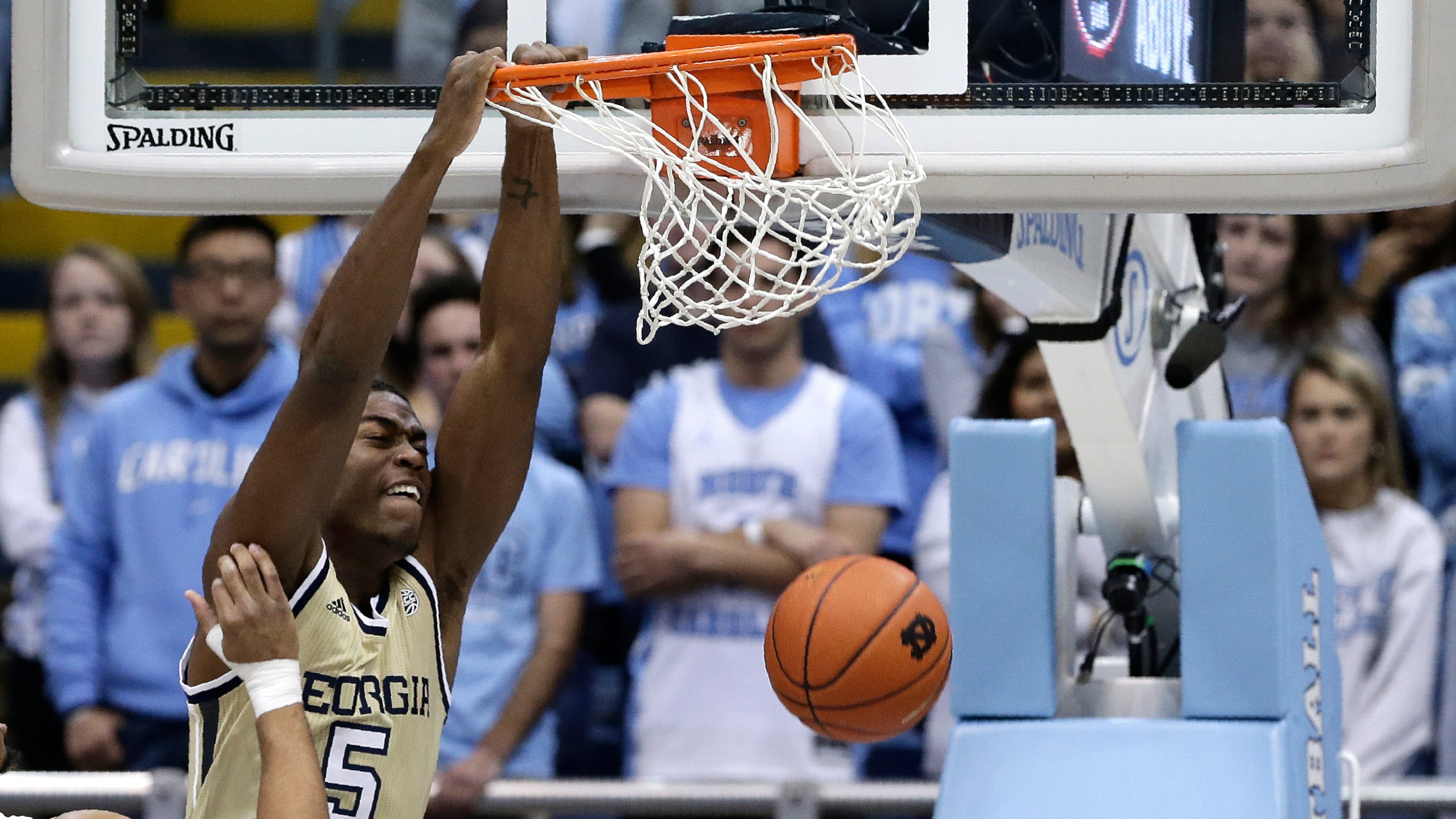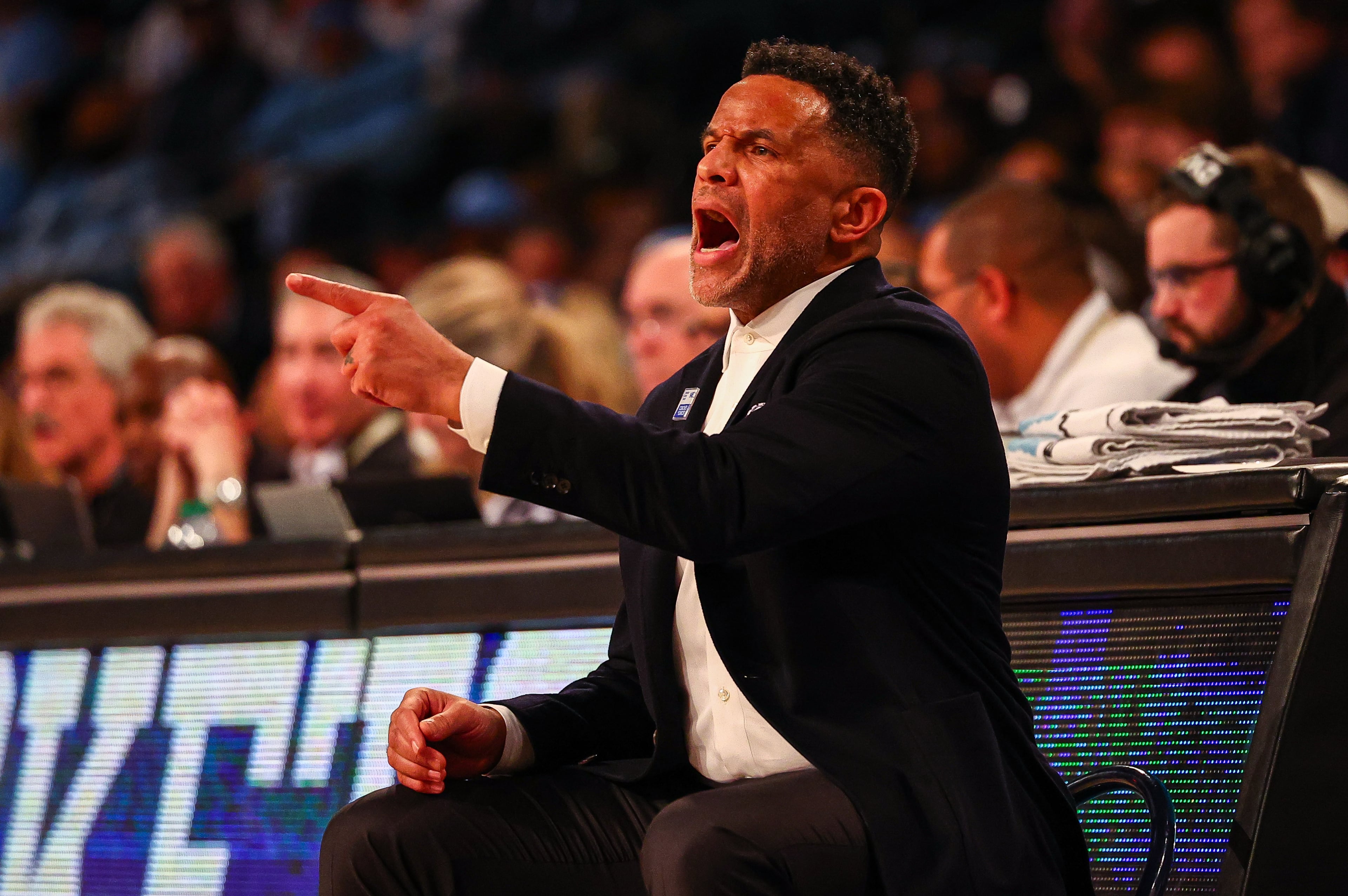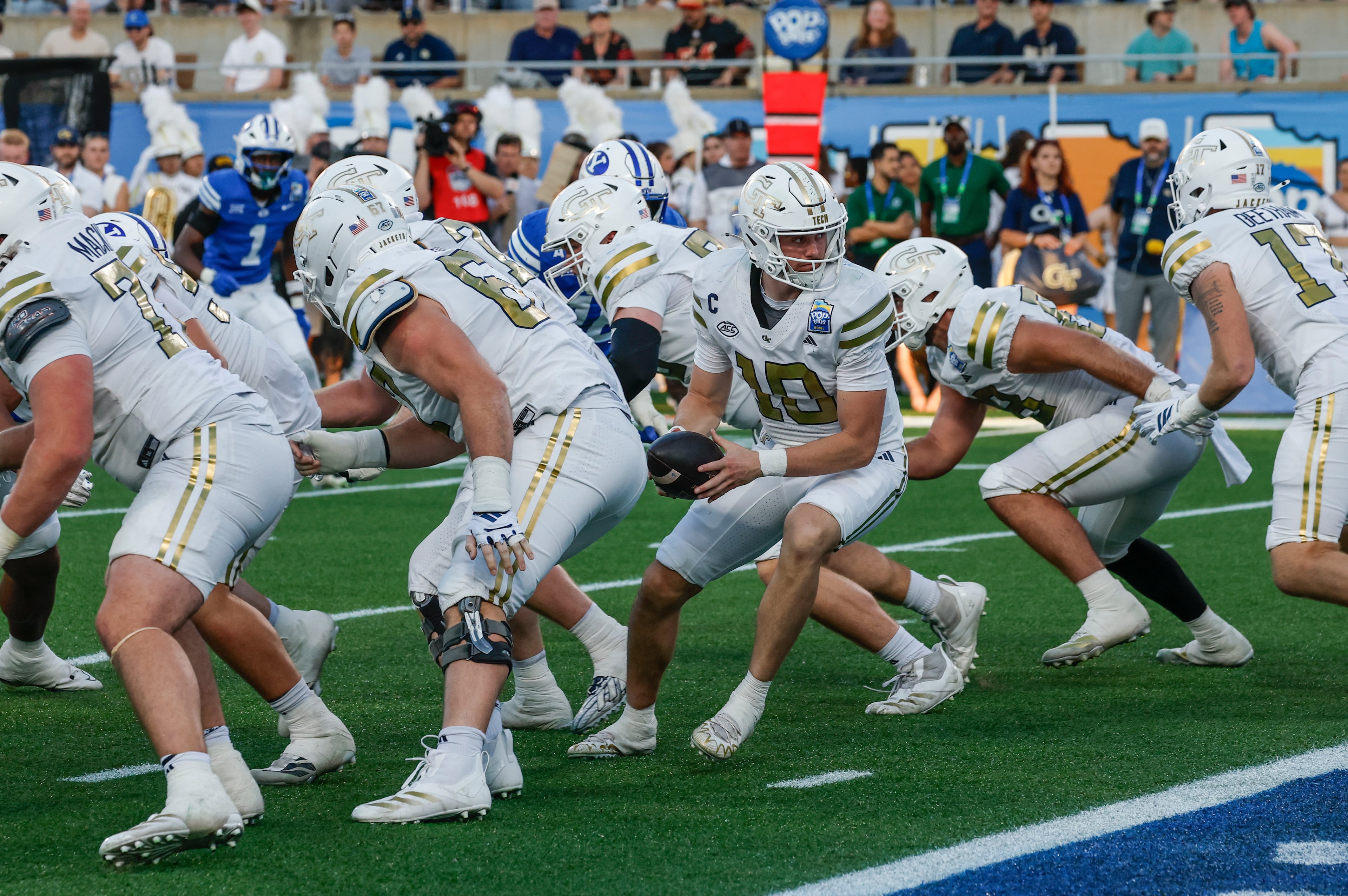Jackets’ Wright ‘absolutely’ candidate for ACC’s most improved player

As a freshman, Georgia Tech forward Moses Wright’s on-court contributions were so minimal that coach Josh Pastner assigned him to a ‘redshirt group’, whose purpose was weight training and skill development rather than preparing for upcoming games.
As a sophomore, his production was so sporadic that he started 21 games but also didn’t get off the bench for two games. He played seven minutes or fewer in another five games – and one of those five was a game he started.
After the weekend’s games, Wright was second in the ACC in field-goal percentage (.553), ninth in rebounds per game (7.3), 12th in points per game (13.7), sixth in double doubles (seven) and ninth in blocks per game (1.2). A year ago, he averaged 6.7 points and 3.7 rebounds per game.
On Saturday, he scored 33 points on 14-for-17 shooting with 10 rebounds at Syracuse, becoming the first visiting player to post a 30/10 line at the Carrier Dome since at least 2010-11, according to the website Sports Reference. A year ago in the same stadium, Wright didn’t even get into the Jackets’ 73-59 win over the Orange, deemed unnecessary as coach Josh Pastner relied on James Banks, Abdoulaye Gueye and Evan Cole in the post.
Pastner, whose team plays Clemson Tuesday night at McCamish Pavilion, acknowledged his bias for Wright. Nevertheless, he believes Wright deserves consideration for the ACC’s most improved player of the year award.
“He’s earned that based on his production and play,” Pastner said Monday on the ACC coaches teleconference. “I think he’s been pretty good for the most part.”
Particularly for a player who was so up and down last season, Wright’s consistency has been a strength. Since Tech’s first game in Hawaii, against Boise State Dec. 22, Wright has scored in double figures in 16 of 18 games and had at least five rebounds 14 times. He has made 56% of his field-goal tries in those games.
Against Syracuse, he scored on jump hooks with his right hand, on a layup with his left hand, drove across the lane for a reverse, flipped in short jumpers and ran the floor for dunks in transition. He had two assists and perhaps his best pass went to waste when he slashed from the wing, drew a defender and slipped an underhand pass to Banks at the basket, but Banks’ dunk try was blocked from behind. It was impressive shotmaking for a player who shot 31 percent from the field as a freshman and 47 percent as a sophomore.
“He’s really good in the middle,” Syracuse coach Jim Boeheim said of Wright after the game. “And we don’t defend that area of the court really well, but he was really good (Saturday). He made some tough plays.”
Notre Dame coach Mike Brey happened to catch much of the game on television and came away impressed with how much of the offense was going through Wright at the top of the lane against Syracuse’s 2-3 zone.
“I’ve always been impressed with him and I think he’s getting better and better and better,” Brey said on the teleconference. “But that was another aspect, because, basically, he was the point guard. The guy who touches the ball at the foul line is an important guy against the zone, and they kept really wanting him to touch it and I thought he made fabulous decisions.”
Players such as North Carolina’s Garrison Brooks, Syracuse’s Buddy Boeheim, Wake Forest’s Olivier Sarr and Clemson’s Aamir Simms also merit consideration for the award, which the league began handing out in 2014. (No Tech player has won it.)
“He is a great candidate,” Brey said. “I haven’t thought through the ballot yet, but he’s a guy that, you mention him, absolutely.”
Pastner has repeatedly expressed his pride in Wright, whose recruiting profile was so low as a high-school senior at Enloe High in Raleigh, N.C., that recruiting websites like Rivals and 247 Sports didn’t even rank him. Given that he only played varsity as a senior, perhaps it was warranted.
But, tipped off by his AAU coach Dwayne West, then-assistant coach Darryl LaBarrie initiated Tech’s recruitment, and Wright signed in the spring of 2017. Wright had one other power-conference offer, from Kansas State.
The process was only beginning. For his first season and a half, Wright’s commitment to practice and development was less than full. Pastner said that “it was a fight” with Wright in getting him to practice the habits and commitment level necessary to improve.
“And the leap he’s made this year, there’s nothing that needs to be mandated,” Pastner said. “He just does it. He wants to stay after and get extra shots. He wants to do all the extra things that’s necessary to be a good basketball player.”
Tuesday, Clemson will try to extend a five-game winning streak against Tech. This season, the Tigers have won their past three games. Coach Brad Brownell has seen plenty of Wright over that time and in preparing for Tuesday’s game.
“Very physically strong, has added a lot of skill to his game, finishing with both hands around the rim,” Brownell said. “Dangerous driver. Can make the 3. He’s just one of those guys that, his confidence is soaring and he’s turned out to be a terrific player.”
Winning the award would be an obvious credit to Wright but also to the work done by Pastner and his staff, particularly assistant coach Eric Reveno, in developing him. Tech’s season has fallen short of expectations, but Wright can be held up as a model of the ability of Pastner’s staff to develop players.
“I think those guys (at Tech) do a great job of accentuating what he can do,” Brownell said. “He’s been a guy that’s made that gradual improvement that we always hope our players are going to make.”



